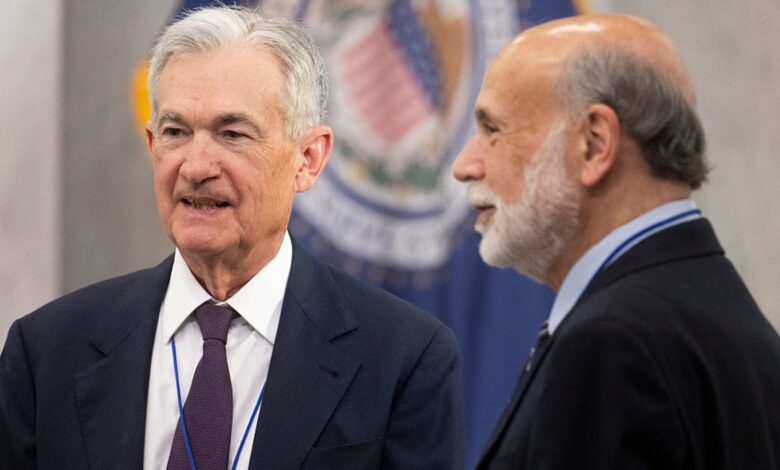Fed’s Powell cautions about higher long-term rates as ‘supply shocks’ provide policy challenges

Federal Reserve Chair Jerome Powell recently addressed the changes in the economy and the central bank’s policy framework review during a speech at the Thomas Laubach Research Conference in Washington, D.C. Powell emphasized that longer-term interest rates are likely to be higher in the future as economic conditions evolve.
Powell highlighted the significant shifts that have occurred over the past five years, including a period of surging inflation that led to aggressive interest rate hikes by the Fed. Despite inflation expectations aligning with the Fed’s 2% target, Powell suggested that near-zero interest rates are unlikely to return anytime soon.
The Fed maintained a near-zero benchmark borrowing rate for seven years following the 2008 financial crisis. Since December 2024, the overnight lending rate has been hovering between 4.25% and 4.5%. Powell’s remarks on potential “supply shocks” echo his recent warnings about the challenges the Fed may face in balancing employment support and inflation control.
While Powell did not directly mention President Donald Trump’s tariffs in his speech, he has acknowledged that tariffs could slow economic growth and increase inflation. The Fed has been cautious about easing policy following a series of rate cuts last year.
Looking ahead, the Fed is conducting a framework review to develop a five-year plan for decision-making and communication strategies. This review will consider factors such as how the Fed communicates future expectations and addresses past policy adjustments.
The current review will also focus on how the Fed handles “shortfalls” in inflation and employment goals. Powell indicated that the Fed will ensure its new consensus statement is adaptable to various economic environments and developments.
In terms of communication, Powell emphasized the importance of effectively conveying uncertainty during periods of economic shocks. The Fed aims to improve its communication strategies to better address market participants’ concerns.
While Powell did not provide a specific timeline for completing the review, he expects it to be finalized in the coming months. In the past, Powell has used the annual Jackson Hole retreat to outline the Fed’s policy direction.





